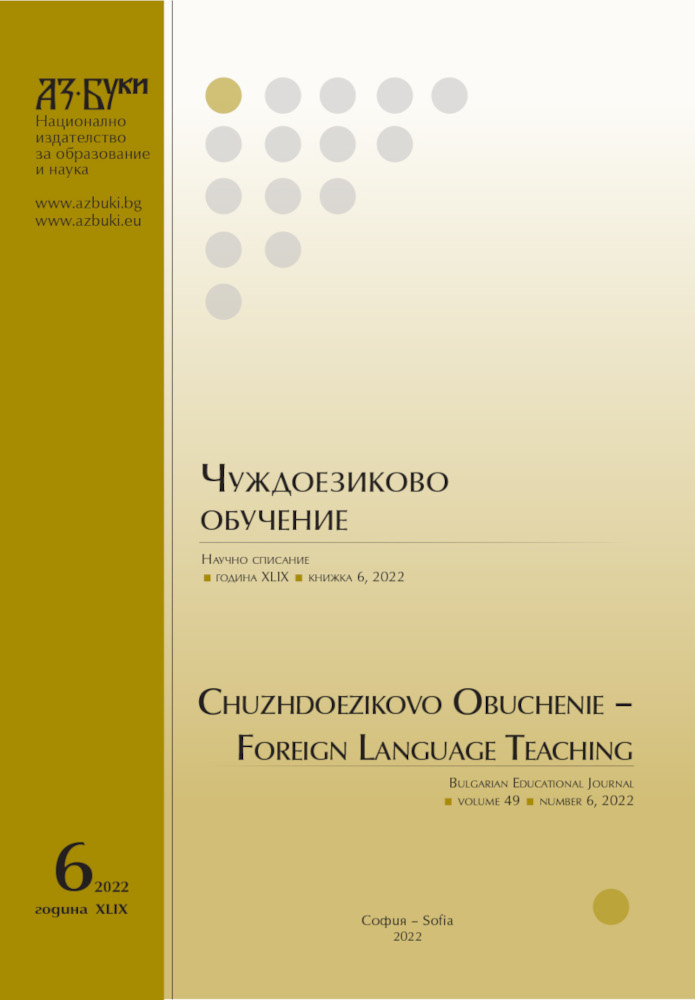Sociolinguistic Credo of a Foreign Language Teacher: The Case of Digital Classroom
Sociolinguistic Credo of a Foreign Language Teacher: The Case of Digital Classroom
Author(s): Ekaterina A. Savkina, Elena G. Tareva, Dimitrina LesnevskayaSubject(s): Language and Literature Studies, Foreign languages learning, Semiotics / Semiology, Theoretical Linguistics, Applied Linguistics, Phonetics / Phonology, Syntax, Lexis, Language acquisition, Philology, Phraseology, Stylistics
Published by: Национално издателство за образование и наука „Аз-буки“
Keywords: digital education; inner culture; intercultural communication; online professional education; sociolinguistic peculiarities
Summary/Abstract: The last two years saw a dramatic increase in the use of digital classrooms due to the new pandemic realities. Internet platforms and social networks offer teachers many options for interacting with their students and colleagues. Online communication differs from face-to-face communication in many aspects and for linguadidactic purposes should be reconsidered from a sociolinguistic point of view. The aim of the study is to explore sociolinguistic aspects of teachers’ nature in online intercultural communication. The study relies on a questionnaire and interviews to collect data about students’ level of sociolinguistic awareness, their ideas about professional online interaction, and their views on sociolinguistic difficulties. The research provides a comparative analysis of the sociolinguistic competence status in Russian and European methodology. The paper introduces the list of internal and external features that influence interlocutors’ sociolinguistic behavior during intercultural communication online. The results suggest that there are a lot of digital factors that determine the communication outcome. The term “sociolinguistic credo” and its definition are presented. It is admitted that external and internal peculiarities should be taken into account in order to train future foreign language teachers effectively. There should be equality of cultures, especially on the Internet where it is easy to lose all cultures behind avatars.
Journal: Чуждоезиково обучение
- Issue Year: 49/2022
- Issue No: 6
- Page Range: 569-582
- Page Count: 14
- Language: English
- Content File-PDF

